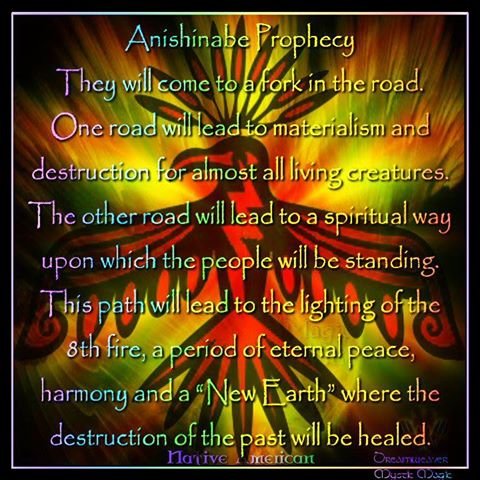
Paleoclimatology (also Palaeoclimatology) is the study of changes in climate taken on the scale of the entire history of Earth. It uses a variety of proxy methods from the Earth and life sciences to obtain data previously preserved within things such as rocks, sediments, ice sheets, tree rings, corals, shells, and microfossils. It then uses the records to determine the past states of the Earth's various climate regions and its atmospheric system. Studies of past changes in the environment and biodiversity often reflect on the current situation, specifically the impact of climate on mass extinctions and biotic recovery
SOURCE: https://en.wikipedia.org/wiki/Paleoclimatology
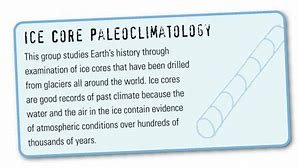
Climate change is a change in the statistical distribution of weather patterns when that change lasts for an extended period of time (i.e., decades to millions of years). Climate change may refer to a change in average weather conditions, or in the time variation of weather within the context of longer-term average conditions. Climate change is caused by factors such as biotic processes, variations in solar radiation received by Earth, plate tectonics, and volcanic eruptions. Certain human activities have been identified as primary causes of ongoing climate change, often referred to as global warming.

Scientists actively work to understand past and future climate by using observations and theoretical models. A climate record—extending deep into the Earth's past—has been assembled, and continues to be built up, based on geological evidence from borehole temperature profiles, cores removed from deep accumulations of ice, floral and faunal records, glacial and periglacial processes, stable-isotope and other analyses of sediment layers, and records of past sea levels. More recent data are provided by the instrumental record. General circulation models, based on the physical sciences, are often used in theoretical approaches to match past climate data, make future projections, and link causes and effects in climate change.
SOURCE: https://en.wikipedia.org/wiki/Climate_change

Global warming is the observed century-scale rise in the average temperature of the Earth's climate system, and its related effects. Multiple lines of scientific evidence show that the climate system is warming. Many of the observed changes since the 1950s are unprecedented in the instrumental temperature record, which extends back to the mid-19th century, and in paleoclimate proxy records covering thousands of years.
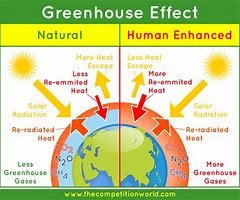
In 2013, the Intergovernmental Panel on Climate Change (IPCC) Fifth Assessment Report concluded that "It is extremely likely that human influence has been the dominant cause of the observed warming since the mid-20th century."
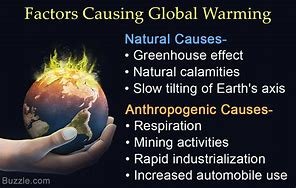
The largest human influence has been the emission of greenhouse gases such as carbon dioxide, methane and nitrous oxide. Climate model projections summarized in the report indicated that during the 21st century, the global surface temperature is likely to rise a further 0.3 to 1.7 °C (0.5 to 3.1 °F) in the lowest emissions scenario, and 2.6 to 4.8 °C (4.7 to 8.6 °F) in the highest emissions scenario.[8] These findings have been recognized by the national science academies of the major industrialized nations[9][a] and are not disputed by any scientific body of national or international standing.
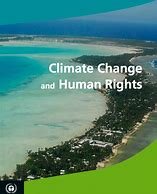
Future climate change and associated impacts will differ from region to region. Anticipated effects include increasing global temperatures, rising sea levels, changing precipitation, and expansion of deserts in the subtropics. Warming is expected to be greater over land than over the oceans and greatest in the Arctic, with the continuing retreat of glaciers, permafrost and sea ice. Other likely changes include more frequent extreme weather events such as heat waves, droughts, heavy rainfall with floods and heavy snowfall; ocean acidification; and species extinctions due to shifting temperature regimes. Effects significant to humans include the threat to food security from decreasing crop yields and the abandonment of populated areas due to rising sea levels. Because the climate system has a large "inertia" and greenhouse gases will remain in the atmosphere for a long time, many of these effects will persist for not only decades or centuries, but for tens of thousands of years to come.

Possible societal responses to global warming include mitigation by emissions reduction, adaptation to its effects, building systems resilient to its effects, and possible future climate engineering. Most countries are parties to the United Nations Framework Convention on Climate Change (UNFCCC), whose ultimate objective is to prevent dangerous anthropogenic climate change. Parties to the UNFCCC have agreed that deep cuts in emissions are required and that global warming should be limited to well below 2.0 °C (3.6 °F) compared to pre-industrial levels,[b] with efforts made to limit warming to 1.5 °C (2.7 °F).

Public reactions to global warming and concern about its effects are also increasing. A global 2015 Pew Research Center report showed that a median of 54% of all respondents asked consider it "a very serious problem". Significant regional differences exist, with Americans and Chinese (whose economies are responsible for the greatest annual CO2 emissions) among the least concerned.
SOURCE: https://en.wikipedia.org/wiki/Global_warming
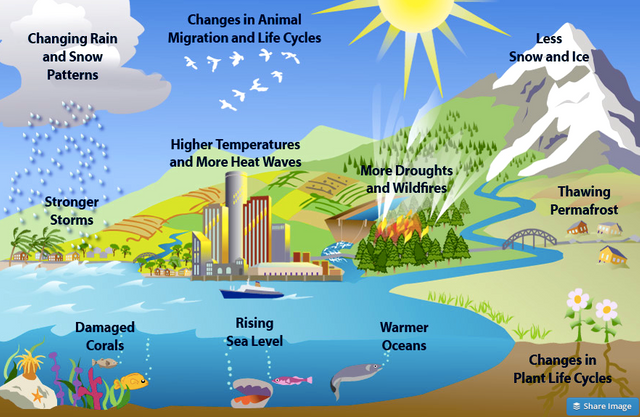
A geomagnetic reversal is a change in a planet's magnetic field such that the positions of magnetic north and magnetic south are interchanged, while geographic north and geographic south remain the same. The Earth's field has alternated between periods of normal polarity, in which the predominant direction of the field was the same as the present direction, and reverse polarity, in which it was the opposite. These periods are called chrons.
The time spans of chrons are randomly distributed with most being between 0.1 and 1 million years[citation needed] with an average of 450,000 years. Most reversals are estimated to take between 1,000 and 10,000 years. The latest one, the Brunhes–Matuyama reversal, occurred 780,000 years ago, and may have happened very quickly, within a human lifetime.
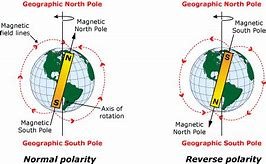
A brief complete reversal, known as the Laschamp event, occurred only 41,000 years ago during the last glacial period. That reversal lasted only about 440 years with the actual change of polarity lasting around 250 years. During this change the strength of the magnetic field weakened to 5% of its present strength. Brief disruptions that do not result in reversal are called geomagnetic excursions.
SOURCE: https://en.wikipedia.org/wiki/Geomagnetic_reversal

Seven fires prophecy is an Anishinaabe prophecy that marks phases, or epochs, in the life of the people on Turtle Island, a Native American name for the North American continent. The seven fires of the prophecy represent key spiritual teachings for North America, and suggest that the different colors and traditions of the human beings can come together on a basis of respect. It predates the arrival of the Europeans, and contains information for the future lives of the Anishinaabe which are still in the process of being fulfilled.
SOURCE: https://en.wikipedia.org/wiki/Seven_fires_prophecy
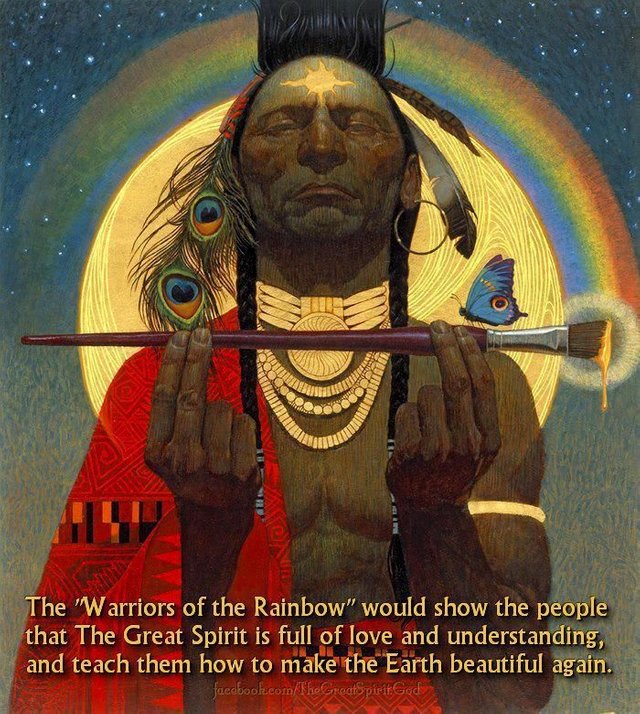
We live in a time of great change... a time which appears and reappears in the prophesies of many Aboriginal cultures from all over the world. The world is in decay, the systems man has built and valued for so long are falling apart... this is the time of the 7th Fire. We must begin the healing now. We must live as flesh ruled by spirit, choosing compassion over greed, and choosing love over fear. We must be the change we want to see in the world, if we are to become the Warriors of the Rainbow.
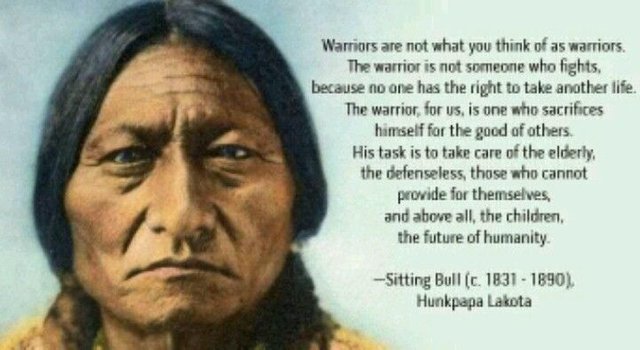
The 8th fire is a prophecy that has been handed down to us by the Native people. "A time would come when the Earth would enter into a change. And our people refer to this as the rebirth of the Earth because a rebirth would have to take place if we are going to prevent the destruction of our planet. The 8th fire, according to our people, says that there would be individuals that would come from all different cultures and they would gather in some way to seek greater advice and direction or to collectively seek out a vision that would lead what is referred to as the new people."
- David Courchene Jr. of the Anishinabe
